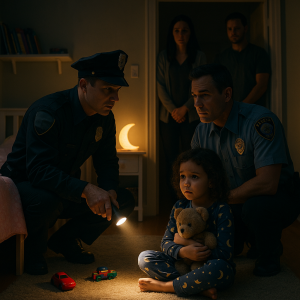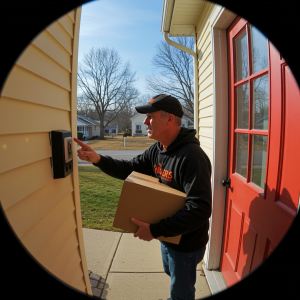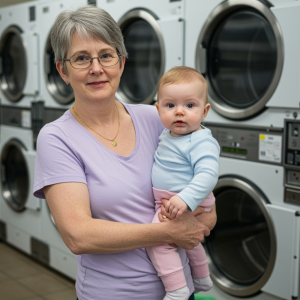A hospital mystery unfolds into an extraordinary tale of friendship, love, and keeping sacred commitments
In the sterile corridors of healthcare facilities, where clinical efficiency often overshadows human connection, some stories emerge that restore faith in the enduring power of love and loyalty. Such was the case when a veteran nurse discovered the remarkable truth behind a daily ritual that had puzzled staff for weeks.
The mystery centered on an elderly patient and her consistent visitor—a man who appeared each day bearing fresh flowers, only to depart after brief, seemingly formal exchanges.
An Unusual Pattern Emerges
Margaret Thompson, a registered nurse with a decade of hospital experience, first noticed the pattern during her morning rounds. Each day, without fail, an elderly gentleman would arrive at the bedside of a 70-year-old woman whose prognosis offered little hope for recovery.
The patient, diagnosed with terminal illness and given weeks to live, had become a favorite among staff for her remarkable spirit. Despite her condition, she maintained an infectious optimism, often encouraging other patients and sharing small treats with caregivers.
What struck Thompson as unusual was the nature of the daily visits. The man would present carefully selected bouquets—roses one day, daisies the next, sometimes seasonal tulips—and exchange only brief pleasantries before departing. The patient’s joy upon receiving these gifts was unmistakable, yet something about the interaction seemed formal rather than intimate.
“In ten years of nursing, you develop instincts about relationships,” Thompson explained. “There was genuine affection there, but also a sense of duty that didn’t quite fit the pattern of a typical marriage or family bond.”
The Question That Changed Everything
After weeks of observing this routine, Thompson’s curiosity overcame professional reserve. During one of the man’s visits, she approached him directly with a question that would reveal an extraordinary story of friendship and sacrifice.
“I had to know,” Thompson recalled. “The formality of their interactions, combined with the obvious care involved, created a puzzle I couldn’t ignore. When I asked about his relationship to our patient, his response completely changed my understanding of what I was witnessing.”
The visitor, clearly moved by the inquiry, revealed that he was not the woman’s husband but rather a close friend of her bedridden spouse, who was receiving care at a different medical facility across town.
A Promise Between Friends
The explanation that followed illuminated decades of friendship and the profound commitment one man made to honor another’s love. The patient’s actual husband, confined to his own hospital bed and unable to travel, had maintained a lifelong tradition of presenting his wife with flowers—not for special occasions, but simply as regular expressions of his devotion.
“He told me that his friend had always said his wife’s smile was the most beautiful sight in the world,” Thompson recounted. “When illness prevented him from continuing this tradition personally, he asked his friend to serve as his proxy, ensuring that his wife would continue receiving these daily reminders of his love.”
The arrangement represented more than simple flower delivery. It embodied a sacred trust between longtime companions and demonstrated how genuine friendship can extend beyond personal convenience into profound acts of service.
Administrative Compassion
Upon learning the full story, Thompson brought the situation to administrative attention. Hospital leadership, moved by the circumstances, initiated discussions about potentially facilitating a reunion between the separated couple.
Within days, arrangements were made to transfer the husband to Thompson’s facility, where the couple could be placed in the same ward. The logistical challenges involved in coordinating care between institutions paled in comparison to the human imperative driving the decision.
“Sometimes healthcare institutions get so focused on protocols and procedures that we lose sight of the human elements,” noted Dr. Sarah Martinez, who oversaw the transfer arrangements. “This situation reminded our entire staff why we entered medicine in the first place.”
Reunion and Resolution
The reunion between the long-married couple provided a poignant conclusion to weeks of separation. For the first time since their hospitalizations began, they could hold hands, share quiet conversations, and experience the comfort of physical proximity during a difficult period.
The daily flower deliveries from the faithful friend ceased, replaced by the husband’s direct expressions of love to his wife. Though his physical condition remained serious, his ability to personally witness her joy at receiving flowers restored a crucial element to both their lives.
A Legacy of Love
The patient passed away several weeks after the reunion, but Thompson emphasized that her final days were enriched by the presence of both her devoted husband and the friend who had faithfully honored their bond.
“What struck me most was how this arrangement exemplified different forms of love operating simultaneously,” Thompson reflected. “There was the romantic love between spouses, the platonic love between lifelong friends, and the compassionate love that motivated everyone involved to prioritize human connection over institutional convenience.”
Broader Implications
The story has resonated throughout the medical facility, influencing how staff approach patient care and family dynamics. Several policy discussions have emerged regarding ways to better accommodate separated family members during end-of-life care.
“This experience taught us that our job extends beyond medical treatment to facilitating the human connections that give meaning to our patients’ lives,” Martinez observed. “Sometimes the most important interventions aren’t pharmaceutical or surgical—they’re simply helping people maintain the relationships that matter most to them.”
Enduring Impact
For Thompson, the experience has become a defining moment in her nursing career, reinforcing her belief in the healing power of human connection. She continues to share the story with new staff members as an example of how healthcare professionals can recognize and support the complex emotional needs of patients and families.
“In a profession where we witness suffering daily, stories like this remind us why our work matters,” she concluded. “Love manifests in countless ways, and sometimes our role is simply to recognize it, respect it, and do whatever we can to help it flourish, even in the most challenging circumstances.”
The tale of the daily flower delivery serves as a powerful reminder that behind every patient lies a web of relationships, commitments, and love stories that deserve recognition and support from those entrusted with providing care during life’s most vulnerable moments.





